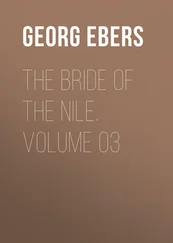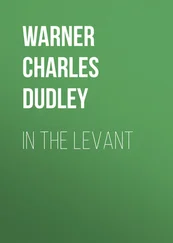Charles Warner - My Winter on the Nile
Здесь есть возможность читать онлайн «Charles Warner - My Winter on the Nile» — ознакомительный отрывок электронной книги совершенно бесплатно, а после прочтения отрывка купить полную версию. В некоторых случаях можно слушать аудио, скачать через торрент в формате fb2 и присутствует краткое содержание. Жанр: Путешествия и география, История, foreign_edu, foreign_antique, foreign_prose, на английском языке. Описание произведения, (предисловие) а так же отзывы посетителей доступны на портале библиотеки ЛибКат.
- Название:My Winter on the Nile
- Автор:
- Жанр:
- Год:неизвестен
- ISBN:нет данных
- Рейтинг книги:5 / 5. Голосов: 1
-
Избранное:Добавить в избранное
- Отзывы:
-
Ваша оценка:
- 100
- 1
- 2
- 3
- 4
- 5
My Winter on the Nile: краткое содержание, описание и аннотация
Предлагаем к чтению аннотацию, описание, краткое содержание или предисловие (зависит от того, что написал сам автор книги «My Winter on the Nile»). Если вы не нашли необходимую информацию о книге — напишите в комментариях, мы постараемся отыскать её.
My Winter on the Nile — читать онлайн ознакомительный отрывок
Ниже представлен текст книги, разбитый по страницам. Система сохранения места последней прочитанной страницы, позволяет с удобством читать онлайн бесплатно книгу «My Winter on the Nile», без необходимости каждый раз заново искать на чём Вы остановились. Поставьте закладку, и сможете в любой момент перейти на страницу, на которой закончили чтение.
Интервал:
Закладка:
Our entry and papers were an event in that office, and the documents became the subject of a general conversation. Other public business (except the cigarettes) was suspended, and nearly every clerk gave his opinion on the question, whatever it was. I was given a seat on a rickety divan, coffee was brought in, the clerks rolled cigarettes for me and the business began to open; not that anybody showed any special interest in it, however. On the floor sat two or three boys, eating their dinner of green bean leaves and some harmless mixture of grease and flour; and a cloud of flies settled on them undisturbed. What service the ragged boys rendered to the government I could not determine. Abd-el-Atti was bandying jocularities with the clerks, and directing the conversation now and then upon the rockets.
In course of time a clerk found a scrap of paper, daubed one side of it with Arabic characters, and armed with this we went to another office and got a signature to it. This, with the other documents, we carried to another room much like the first, where the business appeared to take a fresh start; that is, we sat down and talked; and gradually induced one official after another to add a suggestion or a figure or two. Considering that we were merely trying to pay for some rockets that were ready to be delivered to us, it did seem to me that almost a whole day was too much to devote to the affair. But I was mistaken. The afternoon was waning when we went again to the Bey. He was still in his little “cubby,” and made room for me on the divan. A servant brought coffee. We lighted cigarettes, and, without haste, the bey inked the seal that hung to his gold chain, wet the paper and impressed his name in the proper corner. We were now in a condition to go to the treasury office and pay.
I expected to see a guarded room and heavily bolted safes. Instead of this there was no treasury apartment, nor any strong box. But we found the “treasury” walking about in one of the passages, in the shape of an old Arab in a white turban and faded yellow gown. This personage fished out of his deep breast-pocket a rag of a purse, counted out some change, and put what we paid him into the same receptacle. The Oriental simplicity of the transaction was pleasing. And the money ought to be safe, for one would as soon think of robbing a derweesh as this yellow old man.
The medicine is shipped, the rockets are on board, the crew have been fitted out with cotton drawers, at our expense, (this garment is an addition to the gown they wear), the name of the boat is almost painted, the flags are ready to hoist, and the dahabeëh has been taken from Boulak and is moored above the drawbridge. We only want a north wind.
CHAPTER X.—ON THE NILE
WE have taken possession of our dahabeëh, which lies moored under the bank, out of the current, on the west side of the river above the bridge. On the top of the bank are some structures that seem to be only mounds and walls of mud, but they are really “brivate houses,” and each one has a wooden door, with a wooden lock and key. Here, as at every other rod of the river, where the shore will permit, the inhabitants come to fill their water-jars, to wash clothes, to bathe, or to squat on their heels and wait for the Nile to run dry.
And the Nile is running rapidly away. It sweeps under the arches of the bridge like a freshet, with a current of about three miles an hour. Our sandal (the broad clumsy row-boat which we take in tow) is obliged to aim far above its intended landing-place when we cross, and four vigorous rowers cannot prevent its drifting rapidly down stream. The Nile is always in a hurry on its whole length; even when it spreads over flats for miles, it keeps a channel for swift passage. It is the only thing that is in a hurry in Egypt; and the more one sees it the stronger becomes the contrast of this haste with the flat valley through which it flows and the apathetic inhabitants of its banks.
We not only have taken possession of our boat, but we have begun housekeeping in it. We have had a farewell dinner-party on board. Our guests, who are foreigners, declare that they did not suppose such a dinner possible in the East; a better could not be expected in Paris. We admit that such dinners are not common in this hungry world out of New York. Even in New York the soup would not have been made of lentils.
We have passed a night under a mosquito net, more comfortably than on shore to be sure, but we are anxious to get into motion and change the mosquitoes, the flies, the fleas of Cairo for some less rapacious. It is the seventeenth of December. We are in the bazaars, buying the last things, when, at noon we perceive that the wind has shifted. We hasten on board. Where is the dragoman! “Mohammed Effendi Abd-el-Atti goin’ bazaar come directly,” says the waiter. At half-past two the stout dragoman slides off his donkey and hastens on board with all the speed compatible with short legs, out of breath, but issuing a storm of orders like a belated captain of a seventy-two. He is accompanied by a black boy bearing the name of our dahabeëh, rudely painted on a piece of tin, the paint not yet dry. The dragoman regards it with some pride, and well he may, for it has cost time and trouble. No Arab on the river can pronounce the name, but they all understand its signification when the legend attached to it is related, and having a similar tale in the Koran, they have no objection to sail in a dahabeëh called the RIP VAN WINKLE.
The name has a sort of appropriateness in the present awakening of Egypt to modern life, but exactly what it is we cannot explain.
We seat ourselves on deck to watch the start. There is as much noise and confusion as if the boat were on fire. The moment has come to cast off, when it is discovered that two of the crew are absent, no doubt dallying in some coffee-house. We cannot wait, they must catch us as they can. The stake is pulled up; the plank is drawn in; the boat is shoved off from its sand bed with grunting and yah-hoo-ing, some of the crew in the water, and some pushing with poles; the great sail drops down from the yard and the corner is hauled in to a wild chorus, and we take the stream. For a moment it seems as if we should be carried against the bridge; but the sail is large, the wind seizes us, and the three-months’ voyage has begun.
We are going slowly but steadily, perhaps at the rate of three or four miles an hour, past the receding city, drawing away from the fleet of boats and barges on the shore and the multitudinous life on its banks. It is a scene of color, motion, variety. The river is alive with crafts of all sorts, the shores are vocal with song, laughter, and the unending “chaff” of a river population. Beyond, the spires and domes of the city are lovely in the afternoon light. The citadel and the minarets gleam like silver against the purple of the Mokattam hills. We pass the long white palace of the Queen-mother; we are abreast the isle of Rhoda, its yellow palace and its ancient Nilometer. In the cove at Geezeh are passenger-dahabeëhs, two flying the American flag, with which we exchange salutes as we go. The people on their decks are trying with a telescope to make out the device on our pennant at the yard-arm. It affords occupation for a great many people at different times during the voyage. Upon a white ground is a full sun, in red; following it in red letters is the legend Post Nubila Phobus ; it is the motto on the coat of arms of the City of Hartford. Here it signifies that we four Hartford people, beginning this voyage, exchange the clouds of New England for the sun of Egypt. The flag extends beyond the motto in a bifurcated blue streamer.
Flag, streamer and sail take the freshening north wind. A smaller sail is set aft. The reïs crouches on the bow, watching the channel; the steersman, a grave figure, pushes slowly back and forth the long iron handle of the tiller at the stern; the crew, waiting for their supper, which is cooking near the mast, begin to sing, one taking the solo and the others striking in with a minor response; it is not a song but a one-line ejaculation, followed by a sympathetic and barbaric assent in chorus.
Читать дальшеИнтервал:
Закладка:
Похожие книги на «My Winter on the Nile»
Представляем Вашему вниманию похожие книги на «My Winter on the Nile» списком для выбора. Мы отобрали схожую по названию и смыслу литературу в надежде предоставить читателям больше вариантов отыскать новые, интересные, ещё непрочитанные произведения.
Обсуждение, отзывы о книге «My Winter on the Nile» и просто собственные мнения читателей. Оставьте ваши комментарии, напишите, что Вы думаете о произведении, его смысле или главных героях. Укажите что конкретно понравилось, а что нет, и почему Вы так считаете.












